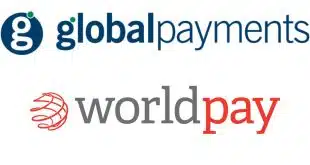With e-commerce kingpin PayPal Inc. having used mobile technology to move into processing for brick-and-mortar merchants, it was probably only a matter of time before others followed suit. The latest to join the parade is San Francisco-based mobile-payments provider Boku Inc., which on Thursday announced a platform that will let mobile carriers offer consumers the ability to pay physical merchants and receive and redeem offers and rewards from those merchants.
The platform, called Boku Accounts, is focused on Europe for the time being but is designed to expand into other regions, including North America. “This is intended to be a global solution,” says Ray Ramillosa, a former Visa Inc. executive who serves as Boku’s senior director of marketing.
No wireless carriers have yet been signed for the product, but Ramillosa says Boku is in talks with “a large operator” in the U.K. Founded just three years ago with a model of charging digital-goods transactions to buyers’ mobile bills, Boku has something of an advantage in approaching carriers, as it has existing relationships with 240 of them worldwide. “We think [Boku Accounts] is a logical extension of [those relationships],” Ramillosa tells Digital Transactions News.
With Boku Accounts, carriers would offer their subscribers a wallet they could use at the point of sale of any merchant that accepts MasterCard. The product comes with a MasterCard-branded prepaid card that can also exist as a contactless sticker affixed to the user’s handset. Users can load and reload the account with another card, with a bank-account transfer, or with a cash top-up. The sticker will work with any merchant that has installed contactless readers.
Merchants are not required to install any hardware or software. Nor are subscribers required to have a smart phone. The offering allows feature-phone users to view merchant offers and set up preferences on a PC, and to receive offers via text message.
Indeed, a key part of the wallet is the ability for merchants to create and send to users discounts, rewards, and offers they can redeem the next time they’re in the store. While not going into detail, Ramillosa says fees from merchants for the marketing component of Boku Accounts will be the wallet’s “predominant source of revenue.” These fees will be based on cost-per-thousand and cost-per-redemption calculations, Ramillosa says without being specific.
A lesser revenue source, he says, will be interchange income from the payment transactions. The prepaid card’s issuer is a unit of financial-services firm IDT Corp. Ramillosa declines to detail how these revenues will be shared by Boku, the carriers, and the issuer. Carriers, whose brand the product will carry, will determine any consumer fees for prepaid activation, reloads, and other services.
The wallet will also allow users to set budgets to control spending, Ramillosa says.
Carrier-centric Boku is apparently not fazed by the pending introduction of a competing wallet by three of North America’s biggest wireless operators. The Isis wallet, designed by Verizon Wireless, AT&T Inc., and T-Mobile USA, is set to debut in the U.S. in July. But Ramillosa says Isis will not cause the three carrier giants to rule out signing up for Boku Accounts. “What we have here is a compelling solution for any carrier,” he says.
That could prove to be true, experts say. “There’s been some evidence of carriers doing multiple strategies with mobile payments,” says Todd Ablowitz, principal of Centennial, Colo.-based consultancy Double Diamond Group. “Would [Boku Accounts] be directly in the face of Isis? I’m not sure.”
At any rate, Boku’s move to the physical point of sale, particularly after PayPal’s extension there, should not come as a surprise given Boku’s mainline business, says Rick Oglesby, a senior analyst focused on mobile payments at Aite Group LLC, Boston. “It’s a logical extension of what they’ve been doing from a carrier-billing standpoint,” he says.





